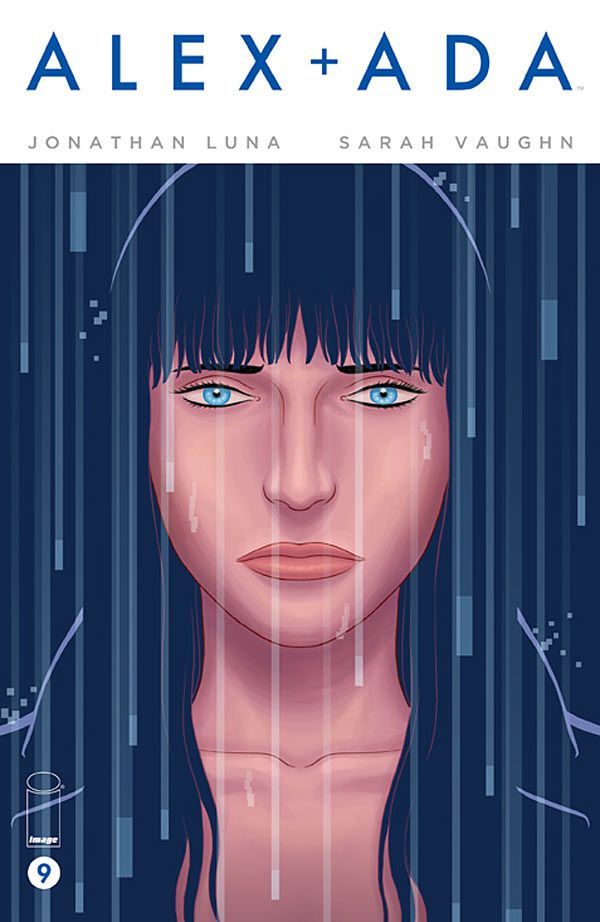In "Alex + Ada" #9 by Sarah Vaughn and Jonathan Luna, the stakes are seemingly higher. There are police chases, secret identities and swoons in the rain, but in many ways it feels less dramatic than previous issues. As events move out of the title characters' control, there's more excitement and action but less dramatic power. Still, issue #9 undoubtedly escalates and expands the series' examination of oppression and free will, even if it reads as mostly expository.
The central drama of "Alex + Ada" thus far has been the decision-making process. Having received an android, how does Alex decide what to do? Having been "unlocked," what will Ada decide to do? Intellectually, yes, it's an exploration of A.I., but dramatically it's an exploration of how people make moral choices in a fraught environment. In issue #9, though, the choices have already been made, and the bulk of the story follows Alex and Ada through the consequences of Ada's decision to leave.
As a result, both characters are acted upon rather than acting. Vaughn and Luna establish the moral, logistic and systemic factors, which restrict the characters' options, using their usual thoughtful dialogue to walk the reader through it. ("Do you want to see her because you care about her more than you thought? Or is it just to be reassured you're a good guy?") The scenes are executed with humanity and clarity, but it ultimately boils down to a whole lot of exposition and explanation.
To be fair, there is something to be said for letting the story take a breath, and much of the exposition also helps build the world. In the grander arc of "Alex + Ada," the work done in this issue will pay off. On an issue level, though, it doesn't deliver much payoff.
I did enjoy seeing Ada take on the decision-making agency. The first arcs of "Alex + Ada" focused on Alex's decisions and quandaries, but now that she's been unlocked, the tables are turned. In this issue, Alex must live with the consequences of her decision, just as she had to live with the consequences of his to wake her up. There's a nice balance to that structure: it not only ensures that each character is allowed to develop, but highlights the unexpected consequences of "giving" someone her freedom. Free people need, as Ada says, "more than four walls and a guardian."
Artistically, this is an interesting issue. Jonathan Luna's faces are still so fragile and open, at once unreadably blank and totally raw. His gift for expressions gives even those panels where the only dialogue is "..." poignancy and resonance. However, there are a few new elements here that don't read as well. After she leaves Alex's house, Ada rendezvous with other androids in a green, tree-lined space, and it's strange to see her outside of the sterile indoor environments that have dominated "Alex + Ada" thus far. While there, she has a heightened encounter with the police that didn't read with much verve. Luna's faces and bodies are wonderfully vulnerable, but they're not visceral.
Though this wasn't my favorite issue, I still love the touching, lyrical sci-fi of "Alex + Ada." Vaughn and Luna's strong creative vision should carry the series to fascinating places in the months to come.

